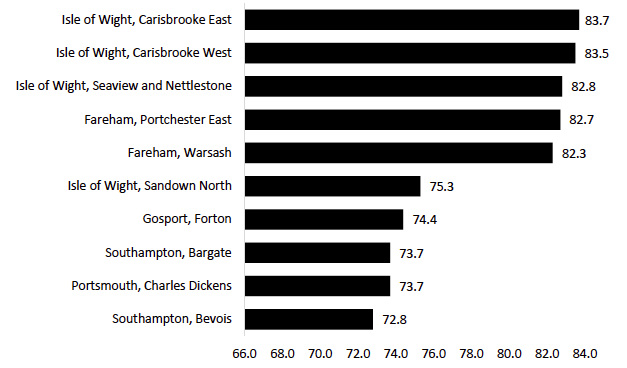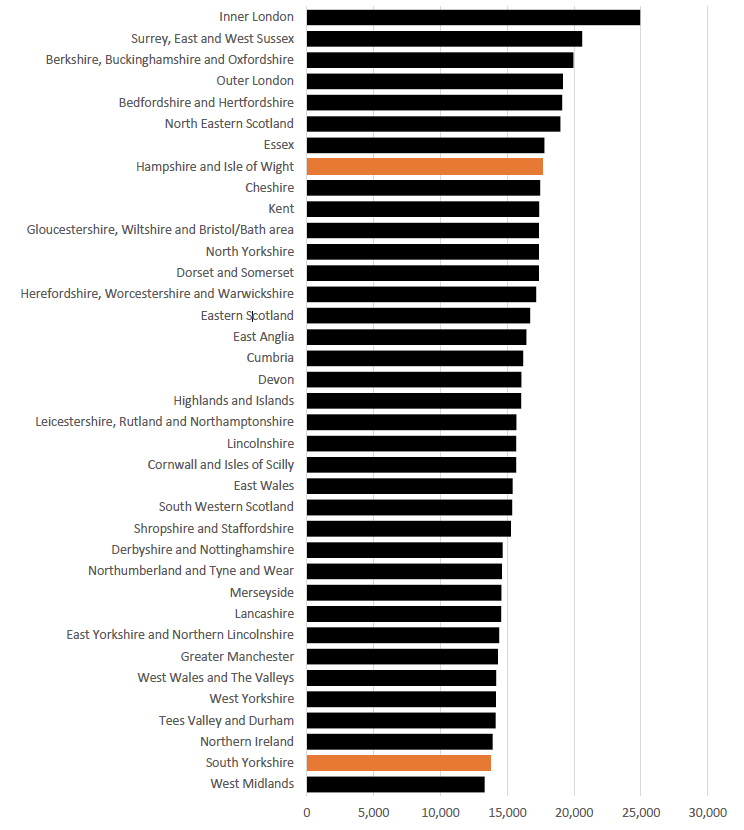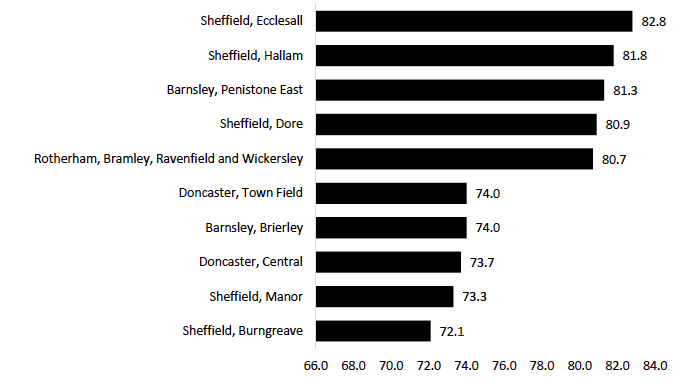In this page:
- One of the government’s main reasons for devolving power to cities and regions is the desire to promote economic development across different parts of England.
- This is because it’s generally agreed that recent growth has been too concentrated in London and the South East.
- While economic prosperity is important, it is not the only measure of a healthy society. Others might include better services, equality, and well-being.
- This page explores these issues.
The government is currently trying to spread prosperity more evenly around the country. The Chancellor has talked about Greater Manchester being part of a ‘Northern Powerhouse’. Can changes in local government structures affect prosperity and well-being? This page outlines some of the issues.
Economic prosperity
At present, as the chart on the next page shows, there are big differences in people’s incomes between different parts of the country. People living in Inner London earn on average just under £25,000 pounds a year. In the West Midlands, people earn on average about half that amount: £13,300 a year.
Assembly South is in one of the more prosperous parts of the country: average incomes in Hampshire and the Isle of Wight are £17,602 a year. But that is still less than in most of the rest of the South East of England.
Assembly North is in the second poorest part of the country: average incomes in South Yorkshire are £13,742 a year.
Household Incomes per head, 2012
Governments have tried to promote the prosperity of different parts of the country through different approaches, often requiring local authorities to work with business partners. The previous Labour governments established Regional Development Agencies. The current government was involved in establishing Local Enterprise Partnerships. These are partnerships between local councils and businesspeople, aimed at fostering economic development.
The government believes that larger authorities such as city regions led by elected mayors with new powers will help spread prosperity. This is based on evidence – such as from the independent RSA City Growth Commission – that the areas with the fastest growth and innovation around the world tend to have
- large populations
- good connectivity
- high skill levels
- good infrastructure (including housing)
- strong higher education institutions
- empowered local leadership
The powers that the government would like to devolve to city regions are therefore focused mainly in areas such as business support, infrastructure development, and training.
Economic Equality
Almost everyone agrees that economic prosperity is important. But is that the only thing that matters? Should we also care about the level of inequality: the difference between the richest and the poorest people in society?
The government’s proposals aim to tackle inequalities between regions. But there are also inequalities within regions. To illustrate this, the charts below show, for both Assembly North and Assembly South, the five wards with highest life expectancy and the five wards with lowest life expectancy. In each case, there is a difference of more than ten years, indicating high levels of inequality between these areas.
There are differences in opinion about the best way to respond to these inequalities. One view is that more local council structures can respond more effectively to local needs. But this would require more funding to poorer areas. Another view is that a larger authority can take a more strategic view, moving resources around to focus on different needs. Indeed, many combined authorities are likely to want to focus on reducing disparities between different places within their areas.
Wards with highest and lowest life expectancy: Assembly North area
Wards with highest and lowest life expectancy, Assembly South area

Life expectancy is measured here at birth. The estimates are for 1999–2003. Source: Office for National Statistics
Other aspects of well-being
Well-being is about more than just level of income, although there is a close relationship between income and life expectancy.
Our quality of life is affected by a whole range of different things. Local councils and public bodies have some influence through matters such as the quality of social services and schools, libraries, leisure centres, and parks, how clean the streets are, and whether town and city centres are well maintained. The role of government at all levels in promoting well-being is about more than just economic development.


